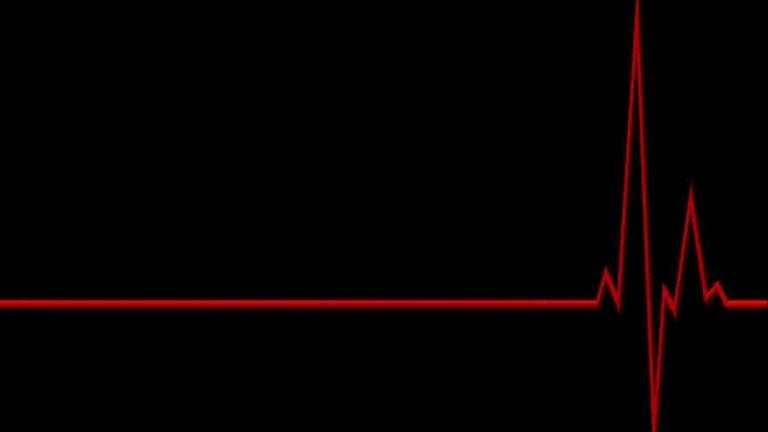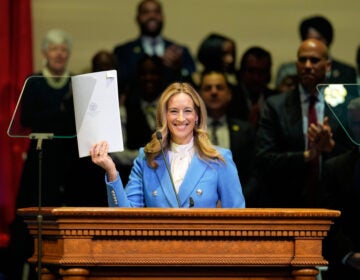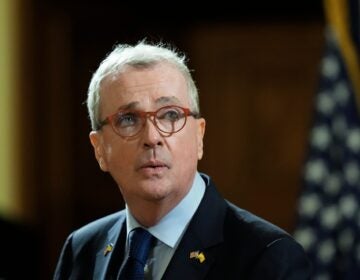Martín Espada: If you thought poetry was dead, you’re wrong

Nationally renowned poet Martín Espada said he’s surprised every time he’s pronounced dead.
Especially with the Geraldine R. Dodge Poetry Festival coming up in Newark, N.J., on October 20-23 (the largest poetry event in America), Espada is “amused” to hear about poetry’s demise.
“Every once in a while, someone takes the pulse of poetry and says, ‘oh no, it’s dead,’ which always comes as news to the rest of us who are still walking around,” he said. This year, Espada will be participating in the Festival for the third time, and he said it’s a true snapshot not just of contemporary poetry, but of the modern multicultural breadth of America.
Martin Farawell, the Festival’s Poetry Director since 2009, says that for the last several years, the event has drawn about 12,000 people over its four days, including record numbers of high school students. This year, about 4,500 students are registered to attend not just from the Tri-State area and the East Coast from Maine to Florida, but all the way from California.
Thirty years ago, the Festival debuted to a small audience at New Jersey’s Waterloo Village, Farawell explained. The event transitioned to a new anchor at Newark’s New Jersey Performing Arts Center (NJPAC), as well as many smaller venues within walking distance in Newark’s Downtown Arts District, in 2010.
New this year
About 10 different stages will offer readings and a wide range of discussions and events for audiences of 100 to 2,000 people. And poetry mavens will be excited to know that for the first time, the annual Poets Forum of the Academy of American Poets will be fully integrated into the Festival.
That means readings and conversations with Guggenheim fellows including U.S. Poet Laureate Juan Felipe Herrera, Jane Hirshfield, Alberto Ríos, Arthur Sze, and National Book Award-winner Mark Doty.
Also new this year: readings from the winners of the Ruth Lilly and Dorothy Sargent Rosenberg Poetry Fellowship, awarded to U.S. citizens or residents between ages 21 and 31.
Other featured mainstage readings at NJPAC will include appearances by three former U.S. Poets Laureate; Pulitzer Prize-winners Gary Snyder and Vijay Seshadri; poet, essayist, and The Nation columnist Katha Pollitt; Espada and fellow Guggenheim recipient Li-Young Lee; and more.
Exploding the old anthologies
Before his years curating the Festival, Farawell, a deep scholar of poetry and award-winning poet himself, admits that his reading of contemporary poets was “scattershot.” But since 2009, he and his team have spent thousands of hours combing literary journals, readings, and hundreds of Festival submissions to make sure the event represents America today.
He suggests going to the library and pulling out a hundred- or fifty-year-old anthology of American poetry: “They’re almost completely dominated by white men.”
The 2016 roster at the Dodge looks very different, in line with “an explosion in American poetry” of women poets, poets of color, and literature with influences from across the globe. That includes “traditions that are Filipino, South American, Spanish, Irish, Italian, Pakistani, African American, Latino, Asian American…There are so many cultural traditions and poetic styles that are becoming part of American poetry.”
The 2016 fest will feature special readings from national poetry and writing organizations including Kundiman, dedicated to Asian-American creative writing; the African-American writers of Cave Canem; CantoMundo’s Latino/a poets, Warrior Writers, spotlighting the work of veterans; and Newark’s own emerging Brick City Voices.
Poetry and social justice
“This is a festival where you can expect to see a broad range of voices,” said Espada, a Brooklyn-born poet of Puerto Rican heritage who has published nearly 20 books. The essayist, editor, and translator is also a professor of English at the University of Massachusetts-Amherst. His most recent book, Vivas to Those Who Have Failed, was published earlier this year, and a new edition of his 1998 book of essays, Zapata’s Disciple, banned in Tucson under the Mexican-American Studies Program outlawed in Arizona, is due out this fall.
According to Espada, “diversity has now become one of those buzzwords…and we have to do something to recharge the battery.” He’s pleased to see “the genuine presence of racial, cultural, and linguistic diversity” at the Festival, and he’s participating in multiple sessions dedicated to social justice and social consciousness, including Friday night’s “The Work to Be Done: Poetry and Social Justice.”
With a title inspired by Gwendolyn Brooks’s landmark poem To The Diaspora, the panel will include Espada, Poet Laureate Herrera, Pollitt, and Claudia Rankine (author of the bestselling Citizen: An American Lyric), with WNYC’s Brian Lehrer as guest moderator.
“There is a school of thought that poetry and politics do not mix,” Espada said, with “all kinds of elaborate intellectual rationalizations…It doesn’t work. At least it hasn’t worked with me.”
“He’s not one of these so-called political poets who lectures the reader and tells you what to think,” Farawell said of Espada. “It’s easy to talk about social movements in the abstract…it’s easy to become distanced from them.” But Espada’s work doesn’t “allow you to distance yourself, or to think of the participants as the ‘other,’ as unlike me…He makes them human.”
Don’t like poetry?
At many other readings and sessions, Espada will read poems including his Alabanza, the now-famous ode to food-service workers who lost their lives in the World Trade Center on 9/11, How We Could Have Lived or Died This Way, about police killings of people of color, and Heal the Cracks in the Bell of the World, about the shooting at Sandy Hook Elementary. He will read his poem dedicated to journalist Jim Foley (a former student of Espada’s), beheaded by ISIS in 2014. There will also be a series of poems about grief, exploring Espada’s father’s life as an activist and creator of the Puerto Rican Diaspora Documentary Project.
This year’s Festival promises to be a lively interdisciplinary celebration of poetry, wide-ranging conversation, and music.
Farawell says the most common thing he hears from Festival attendees, especially those who “don’t like poetry,” is how funny, accessible, and absorbing the events are. People find themselves as engaged as if they’re at a play, a movie, a stand-up comic, or a concert: “They’re often surprised at how involved they are, and how moved they are.”
For ticket information visit the festival website.
The video below features three poets at the 2012 Dodge Poetry Festival.
WHYY is your source for fact-based, in-depth journalism and information. As a nonprofit organization, we rely on financial support from readers like you. Please give today.




